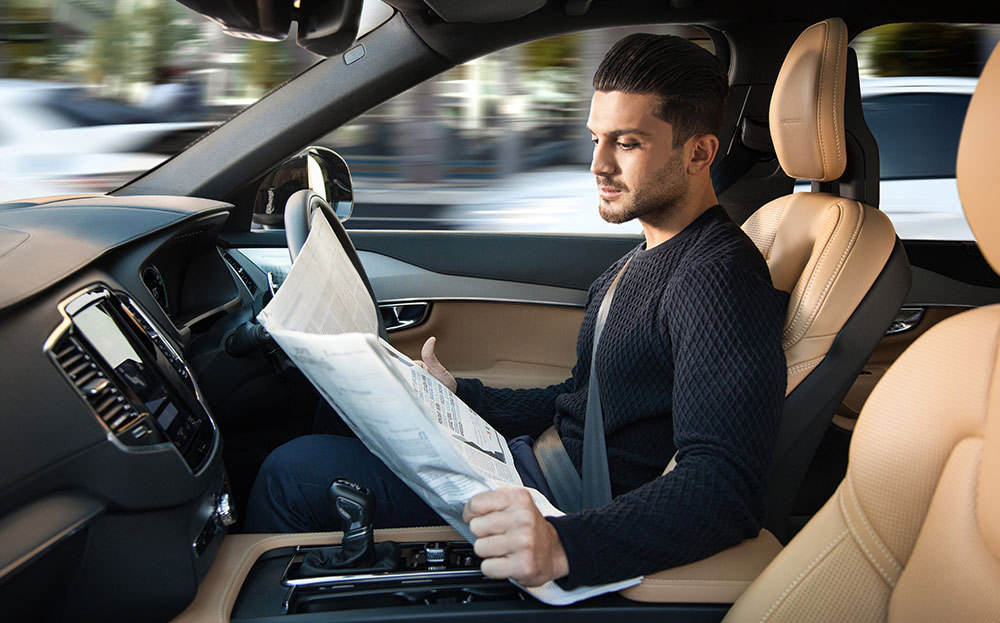Queen's speech reveals plans for driverless cars
Robo-cars will be covered by standard motor insurance within four years, the government says

YOU COULD be cruising up the M6 to visit Granny in a “driverless” car in four years’ time. New legislation announced in the Queen’s speech at the state opening of parliament could allow ordinary people to buy and use autonomous vehicles on the roads by 2020.
Testing of driverless vehicles on British roads will begin next year, first on small local roads and gradually extending to the motorway network. By 2020, it is hoped, new laws will allow them to be covered by standard motor insurance policies, so that private owners can take them wherever they want.
Browse NEW or USED cars for sale on driving.co.uk
The chancellor, George Osborne, said: “Driverless cars could represent the most fundamental change to transport since the invention of the internal combustion engine. Naturally we need to ensure safety, and that’s what the trials we are introducing will test.
“If successful, we could see driverless cars available for sale and on Britain’s roads, boosting UK jobs and productivity.”
The government has already announced plans to work with a consortium of car makers and technology companies, including Jaguar Land Rover (JLR) and Vodafone, on a three-year, £5.6m project called UKCITE (UK Connected Intelligent Transport Environment), incorporating 40 miles of public roads.
Wireless sensors will be fitted to stretches of motorways, A-roads and urban streets around Coventry and Solihull. They will communicate with up to 100 autonomous vehicles, including five JLR research cars. The aim is to see whether the technology can reduce congestion and improve road safety.
The government has separately invested £2.2m from the Intelligent Mobility Fund in the development of driverless pods in city centres. Trials will continued this summer in, among other places, Milton Keynes and Greenwich, where seven autonomous pods will shuttle passengers up and down the southeast London peninsula. The all-British consortium behind the Greenwich project, the GATEway group, is looking for volunteers to help with the trials.
Sajid Javid, the business secretary, said: “Our cars of the future will be equipped with the technologies that will make getting from A to B safer, faster and cleaner. They will alert drivers of accidents ahead and be able to receive information from their surroundings about hazards, increasing the safety of drivers, passengers and pedestrians.
“Britain is a world leader in research and development in such innovative technologies, which improve lives and create opportunity for all. That is why this government has protected the £6bn science budget and is providing up to £20m for these projects.”




